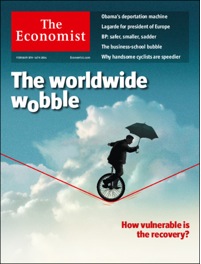A Brief Colonial History Of Ceylon(SriLanka)
Sri Lanka: One Island Two Nations
A Brief Colonial History Of Ceylon(SriLanka)
Sri Lanka: One Island Two Nations
(Full Story)
Search This Blog
Back to 500BC.
==========================
Thiranjala Weerasinghe sj.- One Island Two Nations
?????????????????????????????????????????????????Thursday, February 27, 2014
Two Views Of Capitalism’s Global Wobble
There are substantial paradigm differences between my analyses and the Economist.
Mine was a theory of why global capitalism entered a period of
prolonged crisis and argued that it would be unable to pull out of this
hole for a long time. Indeed, a sustained recovery has still to emerge
though five years have elapsed since the September 2008 debacle. Brief
upturns in America and Europe are followed by disappointing lapses; it’s
a wobble at the bottom like a drunkard in a ditch. Recovery, by
definition a sustained process, is nowhere in sight.
The Economist, on the other hand, takes a sanguine view of the
global economy in its leader of 8 February, “Global economy: World wide
wobble” and a longer piece: “The world economy will have a bumpy 2014;
but the recovery is not, yet, at risk”. I have reproduced my conceptual
diagram of 2009 and the Economists cover page for comparison.
Notwithstanding the use of ‘Wobble’ terminology the gap is striking. I
will summarise my theory in a moment. The Economist has no
paradigm; both pieces are exercises in empiricism; look at data, note
trends and make projections. Methodologically they are pencil and eraser
exercises; keep a straight-edge on a data-set and draw trend-lines. It
is whistling in the dark, hoping for a recovery albeit with
fluctuations.


